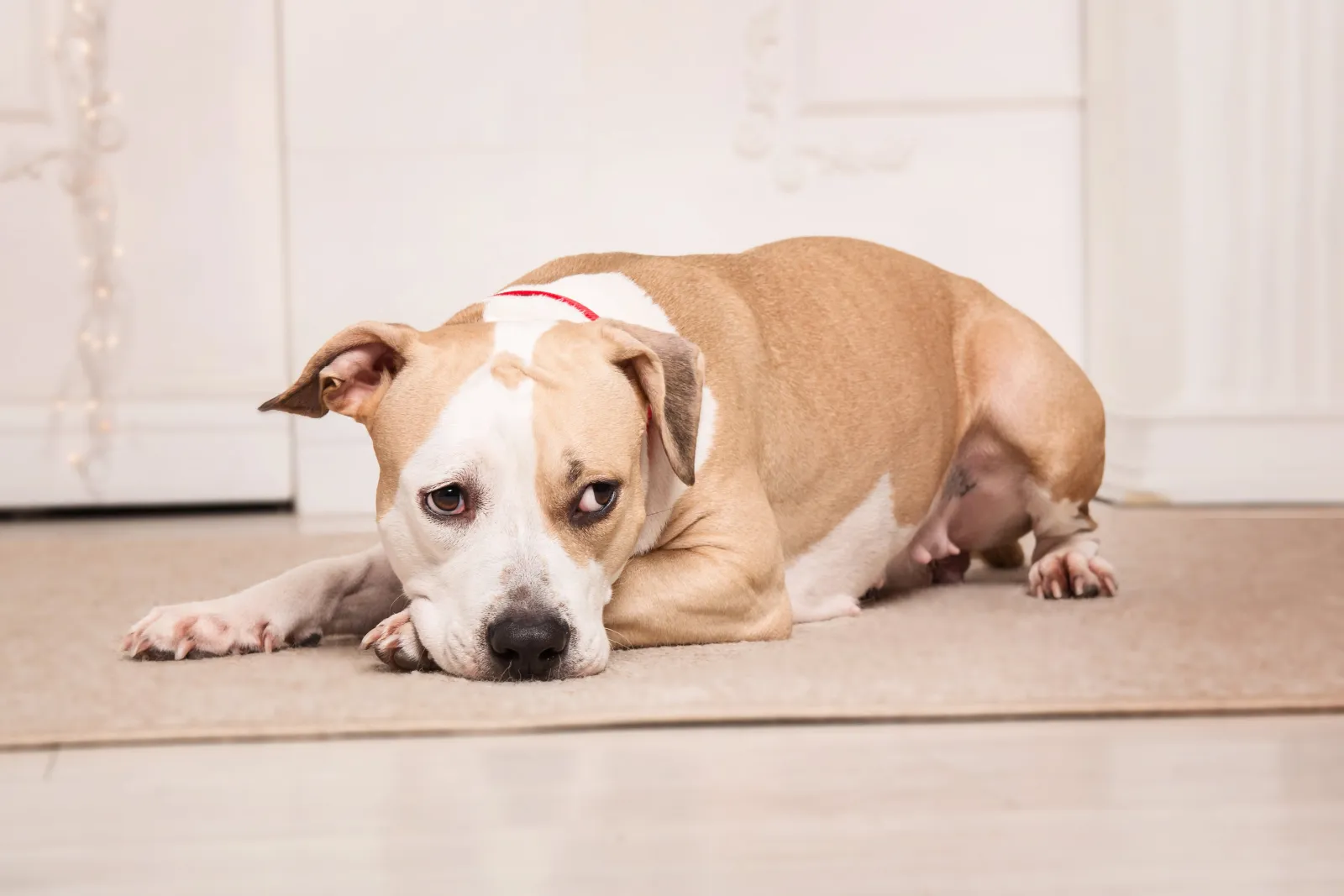How to Spot and Manage Your Dog's Anxiety?
A dog's day seems full of unconditional love and companionship, so why would your furry friend have any cause to feel anything but happy? Well, like us, dogs, too, can experience moments of stress and anxiety. That's why every pet owner needs to understand the subtle cues that indicate their beloved furry friend may be struggling with anxiety.

Below, we'll explore dog anxiety signs, examine the complexities of dog separation anxiety, discuss the role of dog anxiety medication, and clarify the difference between anxiety and aggression in dogs.
Dog Anxiety Signs
Our four-legged pals communicate in ways that may go unnoticed by the untrained eye. Recognizing dog anxiety signs is the first step toward ensuring your dog's emotional well-being. Look for subtle changes in behavior, such as excessive panting, pacing, or restlessness. If your once-social pup becomes withdrawn or excessively clingy, these could be signs of anxiety. Additionally, pay attention to changes in appetite, excessive barking, or destructive behavior.
Dog Separation Anxiety
Dogs are inherently social animals, forming strong bonds with their human companions. However, when left alone, some dogs may experience dog separation anxiety. This condition can appear in various ways, from incessant barking to destructive chewing.
Gradually get your dog used to being alone by starting with short durations and progressively increasing the time apart to alleviate separation anxiety. Introduce positive associations with your departure, like leaving a favorite toy or treat. Interactive toys, such as puzzle or treat dispensing, can be a good distraction.
Creating a safe and comfortable space for your dog, with familiar scents and cozy bedding, can also provide reassurance during your absence. Establishing a consistent routine and incorporating activities stimulating your dog's mind can help ease separation anxiety and foster independence.
Anxiety and Aggression: What's the Difference?
Understanding the intricate relationship between anxiety and aggression is pivotal for pet owners. Anxiety can manifest as aggressive behavior in dogs, making it crucial to address the root cause rather than merely suppressing the symptoms. Pinpoint the factors triggering anxiety-induced aggression in your dog and initiate desensitization using positive reinforcement techniques.
Implementing behavior modification techniques, such as reward-based training, can redirect aggressive tendencies and promote a positive environment. Consistency and patience are key when addressing anxiety-related aggression, ensuring a harmonious relationship between you and your beloved canine companion.
Dog Anxiety Medication
In some cases, managing anxiety in dogs may require additional support, and that's where dog anxiety medication comes into play. Before exploring medication options, consult your veterinarian to determine the most suitable action. Certain medicines, such as anti-anxiety or antidepressants, can help regulate your dog's emotions.
It's crucial to follow your vet's guidance regarding dosage and administration. Additionally, watch your dog's response to medication, adjusting as necessary under professional guidance. Combining medication with behavioral training and a supportive environment can yield positive results in managing your dog's anxiety.
Our dogs bring boundless joy into our lives. As pet owners, we want to look out for their emotional well-being. By recognizing and addressing the dog anxiety signs, understanding the nuances of dog separation anxiety, exploring the role of dog anxiety medication, and navigating the delicate balance between anxiety and aggression, we can create a nurturing environment where our furry friends thrive.
By embracing managing your dog's anxiety, you can strengthen the bond with your pet, fostering their overall happiness and comfort. So, let's embark on this shared adventure of understanding and supporting our dogs, ensuring a lifetime filled with tail wags, wet noses, and unconditional love.
If your dog is experiencing anxiety, you don't need to blame yourself. It's a common issue with dogs. So be kind to yourself and contact us at Forever Vets to schedule an appointment. We provide the best preventive care that is affordable and available for your four-legged friend. Our veterinary services are tailored to your pet's health, from our wellness plans to exams.


